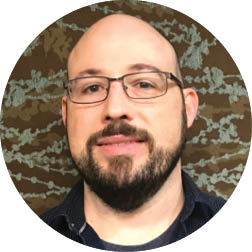The life and times of a Winthrop University researcher
Winthrop University is known for its campus diversity among its students with students from various different races, sexualities, backgrounds and interests. However, Winthrop is also known for its diversity among the faculty and staff.
When students step foot off of the elevator or off of the staircase on the third floor of Kinard, students are automatically immersed into an atmosphere of different cultures and interests from the anthropology, philosophy, religion and sociology departments.
Associate professor in sociology and Director of the criminal justice and criminology department at Winthrop, Bradley Tripp has been working with the sociology department at Winthrop teaching classes on a wide array of topics such as the introduction courses, HMXP (the Human Experience), introduction to criminal justice, criminology and many others. But his teachings are only the tip of the iceberg with him.
His research is cutting edge too.
At the moment, Tripp is working on two different research projects, his goal is to look at ways that his research could have a positive impact on the community and on programming decisions in the criminal justice system.
“I wanted to do something that could benefit the system, young people and the community,” Tripp expressed. “The first research is research on what we call juvenile intervention which focuses on juveniles who get into trouble with the system which can be rooted in three different ways: go to a correctional facility, go on probation or be put into a juvenile intervention program.”
Tripp began working with a professor at Clemson University named William Quinn who, 20 years ago, created the Family Solutions Program which works with juveniles who are first time nonviolent offenders or juveniles that are habitual truants. This 10 week program attempts to enact positive change in the lives of juveniles.
What Tripp found by juveniles who went through the program was an increase in communication skills, decreases in family stress and an overall positive change through the program. Tripp, along with Quinn, also work with determining whether this program would work in other states as well.
The other research that Tripp is working on at this time is he is working with local school resource officers.
“I interviewed local officers and asked them about their perceptions of the job, how and when they use discretion, do they engage in zero tolerance,” Tripp said. “I interviewed nine officers and I’m in the process of transcribing the data and analyzing the data. The one finding that is repeated among all the officers is the issue of technology in school, more specifically the use of social media.”




